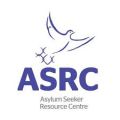Minimum age views polled
 Most Western Australians are unaware kids as young as ten can be jailed.
Most Western Australians are unaware kids as young as ten can be jailed.
Public demand to raise WA’s minimum age of criminal responsibility (MACR) is building momentum as a recent Edith Cowan University (ECU) study reveals widespread public misunderstanding of youth justice laws.
Led by ECU criminologist Dr Suzanne Rock, the study found only 6 per cent of surveyed Western Australians knew children as young as ten could face criminal charges.
Upon learning this fact, more than 75 per cent of participants voiced support for raising the MACR to between 12 and 18 years, suggesting a substantial shift in public opinion when presented with the realities of current law.
The study, the first in WA to assess public views on the MACR, involved 69 participants who were asked about their knowledge, attitudes, and preferences for youth crime policy.
“Ninety-four per cent of participants were unaware that children can be arrested, charged, remanded in custody, sentenced, and incarcerated as young as 10 years old. And once informed, most were shocked,” Dr Rock said.
Most initially believed children grasped right from wrong by age ten but reconsidered their stance when informed about international standards and developmental research supporting a higher MACR.
Neurological studies cited in the paper confirm that critical brain functions related to impulse control, moral reasoning, and understanding consequences are still developing well into adolescence and do not typically reach maturity until the early twenties.
The research aligns with broader psychological and neurological consensus that young adolescents do not possess the adult-level capacity required to make fully informed decisions about right and wrong.
The study also discusses the principle of doli incapax - which assumes children aged 10 to 13 lack criminal intent unless proven otherwise - as an inadequate protection, given inconsistencies in its application.
More than three-quarters of respondents preferred age-appropriate rehabilitative measures rather than punitive actions for young offenders, challenging the long-held assumption that Australians favour a strict penal approach.
Australia is one of a few countries with an MACR set as low as ten, a position criticised by the United Nations, which recommends raising it to 14 to better align with international human rights standards.
Internationally, most democratic nations set their MACR at 14 or above.
However, most Australian states, including WA, remain reluctant to act, with government hesitation often attributed to fears of appearing lenient on crime.
“Our research has shown that upon discovering the MACR in Western Australia, most participants were appalled at Australia’s unwillingness to align itself with other UN countries and favoured raising the age,” Dr Rock said
The current MACR has been linked to higher rates of early criminal justice contact for Indigenous and disadvantaged youth, exposing them to cycles of reoffending and compounding social challenges.
Participants in the study noted the inconsistency between MACR policy and other age-based restrictions, including legal limits on driving, drinking, and voting, which reflect the maturity required for responsible decision-making.
“You can’t board a plane unless you are 12 or older... [but] a 10-year-old can be arrested,” remarked one respondent.







 Print
Print



